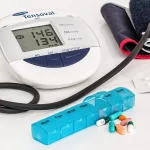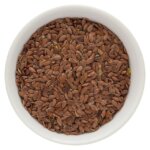Depression is a major issue in our society. It’s considered a disorder that affects many lives. From 10-25% of people will experience an episode of depression during their lifetime and up to one third of college students will have been diagnosed with some form of depression. Depression can also lead to suicide, substance abuse, and other mental health issues such as anxiety or bipolar disorder. If you’re struggling with any type of depression, here are some steps you can take to improve your mental health.
Mental Health vs Depression
Mental health is about your thoughts, feelings, and behaviors. Depression is an image of you that you have of yourself. Many people with depression believe that their life is not worth living and they often start to self-sabotage, deny it’s happening, or become increasingly numb to the world around them.
Depression can be treated with methods such as Cognitive Behavioral Therapy (CBT) which helps you understand the relationship between thoughts, feelings, and behavior. You are able to identify what triggers your depressive episodes and change your thinking patterns so that you will experience fewer negative thoughts and emotions during those moments.
Depression can also stem from other mental health issues such as anxiety or bipolar disorder. If you think you may have these conditions and are struggling with depression, it’s important to get checked out by a professional for proper diagnosis and treatment options. Following are the 5 Steps to Mental Wellbeing:
- Talk to a professional who can help you
You need someone on your side when dealing with depression. It can be difficult to know if it is something that you might just have to get through or if it is something that requires treatment. A therapist, psychiatrist, or psychologist can help you work through the symptoms of depression and help you find the roots of the issue.
- Practice mindfulness
Mindfulness is an important step for anyone struggling with depression or anxiety. Mindfulness has been shown to reduce symptoms of depression and anxiety by up to 50 percent in some cases with minimal practice. Simply practicing mindfulness means taking deep breaths throughout the day and focusing on the present moment without getting overwhelmed by thoughts, feelings, and emotions while doing so.
- Find a hobby
A favorite hobby can be a great way to relieve stress and feel alive again after feeling like there’s nothing left worth living for during a depressive episode. Hobbies like drawing, painting, writing, playing sports (or any other activity) can give you pleasure again and make you feel good about yourself again once more. Take time out for yourself and do something that feeds your soul!
- Be conscious of what triggers your depression
It’s important to be conscious of what causes your depressive episodes so that you can figure out how to avoid them in the future before they happen again, which will result in less frequent episodes of depression over time. Sometimes people who struggle with depression might not know why they feel
What Can You Do To Improve Your Mental Health?
The first step you can take to improve your mental health is to surround yourself with positive people who support you. You should also avoid surrounding yourself with people who are negative and draining. If you find yourself in a toxic or stressful situation, it’s important that you remove yourself from it as soon as possible.
After that, it’s crucial to take care of yourself physically and emotionally. It’s important not only for your health, but also for your mental health that you eat well and get enough sleep. Making time for exercise is another strategy to keep your mind healthy by giving it an opportunity to unwind and de-stress.
Lastly, make sure you have a good support system in place when struggling with depression because this will help you stay positive and in control of the situation.
Treating Depression With Exercise And Diet
One way to treat depression is through exercise. A study on mice found that exercise can help combat depressive symptoms as it increases the expression of brain-derived neurotrophic factor (BDNF). Another study found that college students who exercised for at least 30 minutes a day had significantly lower levels of depressive symptoms and significantly better grades than those who didn’t exercise.
As a lifestyle choice, diet can also affect your depression. For example, eating fewer fatty foods like butter, cheese, and red meat while increasing your intake of healthy fats like olive oil can help balance your moods and fight depression. Additionally, the Mediterranean diet has been shown to lower the risk of depression in older adults. The Mediterranean diet contains a variety of fruits and vegetables including tomatoes, grapes, olives, fruit juices and green leafy vegetables such as spinach. This diet also includes dairy products like milk, yogurt and cheese.
Takeaway:
In this article, the author has provided a guide for those struggling with depression. They have provided five steps for mental wellbeing that are found to be effective in reducing the symptoms of depression. These five steps are as follows:
A. Understand Your Psychology
This includes understanding how your brain is wired and the processes that cause mental health issues. One of the main causes of depression is how chemicals like serotonin and dopamine are released in the brain and how these chemicals affect your moods.
B. Identify Your Depression
This refers to figuring out what triggers your depression and how you can replace them with healthier alternatives. This includes keeping a diary to figure out what makes you feel happy and what makes you feel sad.
C. Change Your Habits
This includes finding healthier alternatives to the negative habits you have been engaging in, such as engaging in a routine, taking medications, or seeking professional help.
D. Create a Support System
This includes surrounding yourself with friends, family, and loved ones who have a healthy outlook on life and can help you when you’re struggling.
E. Get Exercise And Take Care Of Your Diet
This includes exercising regularly and eating more vegetables, fruits, whole grains, and lean protein.












